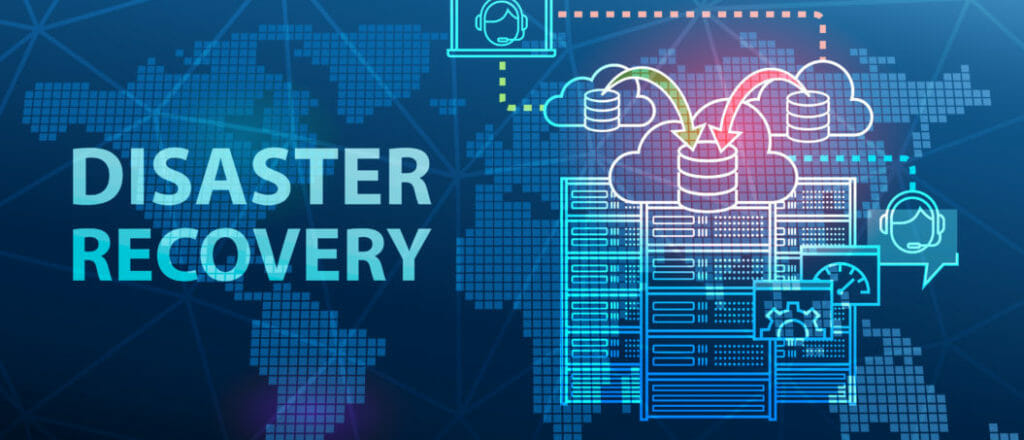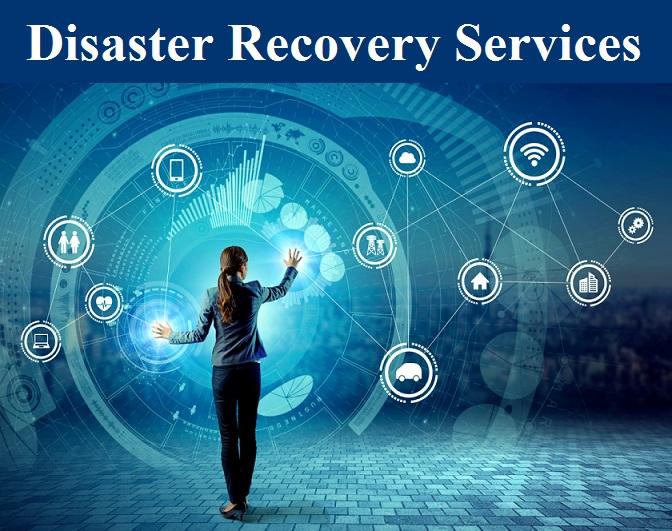Introduction
In today’s rapidly evolving technological landscape, businesses are becoming increasingly dependent on their data and IT infrastructure. With the potential threat of disasters such as natural calamities, cyberattacks, or hardware failures, ensuring the safety and continuity of critical data has become paramount. This is where disaster recovery service providers play a pivotal role, offering a lifeline to businesses when disaster strikes. In this blog, we will explore the importance of disaster recovery services and provide essential insights into choosing the best service provider to safeguard your business.

Understanding the Need for Disaster Recovery Services
Disasters can strike without warning, leaving businesses vulnerable to data loss, downtime, and financial repercussions. Whether it’s a devastating hurricane, a malicious ransomware attack, or a simple server failure, the consequences can be severe. Disaster recovery services are designed to minimize these consequences by creating comprehensive strategies and systems that facilitate data backup, recovery, and business continuity.
The Key Attributes of Reliable Disaster Recovery Service Providers
- Expertise and Experience: When it comes to safeguarding your critical data, experience matters. Look for service providers with a proven track record in disaster recovery planning, implementation, and execution. They should have a team of skilled professionals who understand the intricacies of data recovery and can tailor solutions to your business’s unique needs.
- Comprehensive Risk Assessment: A reliable service provider will conduct a thorough risk assessment to identify potential vulnerabilities in your existing infrastructure and data management practices. This assessment is crucial for developing a customized disaster recovery plan that addresses your specific risks and requirements.
- Robust Data Backup Solutions: One of the primary functions of a disaster recovery service provider is to ensure regular and secure data backups. They should have robust backup systems in place, with multiple redundant locations for storing data. Cloud-based backups are gaining popularity due to their scalability and accessibility.
- Quick Recovery Time Objective (RTO) and Recovery Point Objective (RPO): RTO refers to the maximum tolerable downtime, while RPO denotes the maximum data loss a business can tolerate. The best providers will offer low RTO and RPO values, minimizing downtime and data loss in the event of a disaster.
- Testing and Maintenance: Disaster recovery plans must be regularly tested and updated to ensure their effectiveness. Look for providers who conduct frequent tests and simulations to validate their strategies and identify areas for improvement.
- Scalability and Flexibility: As your business grows, your disaster recovery needs will evolve too. Choose a service provider that can scale its services to accommodate your expanding data and infrastructure requirements.
- Security Measures: Data security is of utmost importance in disaster recovery. Ensure that the provider adheres to the highest industry standards for data encryption, access controls, and compliance regulations.
- 24/7 Support: Disasters can strike at any time, so having round-the-clock support from your service provider is critical. Choose a provider that offers 24/7 customer support to address any issues promptly.
Selecting the Right Disaster Recovery Service Provider
- Assess Your Business Needs: Before exploring potential providers, evaluate your business’s disaster recovery requirements. Consider factors such as the criticality of data, budget constraints, compliance obligations, and the acceptable level of downtime.
- Research and Compare Providers: Conduct thorough research to identify reputable disaster recovery service providers in your region or industry. To determine their dependability and level of customer happiness, read client comments and reviews. Obtain quotes from multiple providers and compare their services, pricing, and service-level agreements.
- Check Credentials and Certifications: Ensure that the service providers you are considering have the necessary certifications and compliance with industry standards. Look for affiliations with disaster recovery organizations or technology partners.
- Request and Review References: Ask potential providers for references from their existing clients. Contact these references to gain insights into the provider’s performance, responsiveness, and overall satisfaction.
- Evaluate Security Measures: Data security is paramount in disaster recovery. Inquire about the provider’s security protocols, encryption methods, and access controls. Request information about past security incidents and how they were resolved.
- Test Their Support System: Reach out to the provider’s customer support to gauge their responsiveness and expertise. A competent support team can make a significant difference during a crisis.
- Future Trends in Disaster Recovery: Look ahead to emerging technologies and trends in disaster recovery, such as AI-driven recovery automation, block chain for data integrity, or edge computing for improved resilience.

Conclusion
Investing in a reliable disaster recovery service provider is an essential step towards safeguarding your business from unforeseen disasters. By thoroughly assessing your needs and carefully evaluating potential providers based on their expertise, experience, security measures, and support services, you can ensure that your critical data remains protected and your business stays resilient in the face of adversity. Remember, disaster recovery is not an option but a necessity for every modern business.

